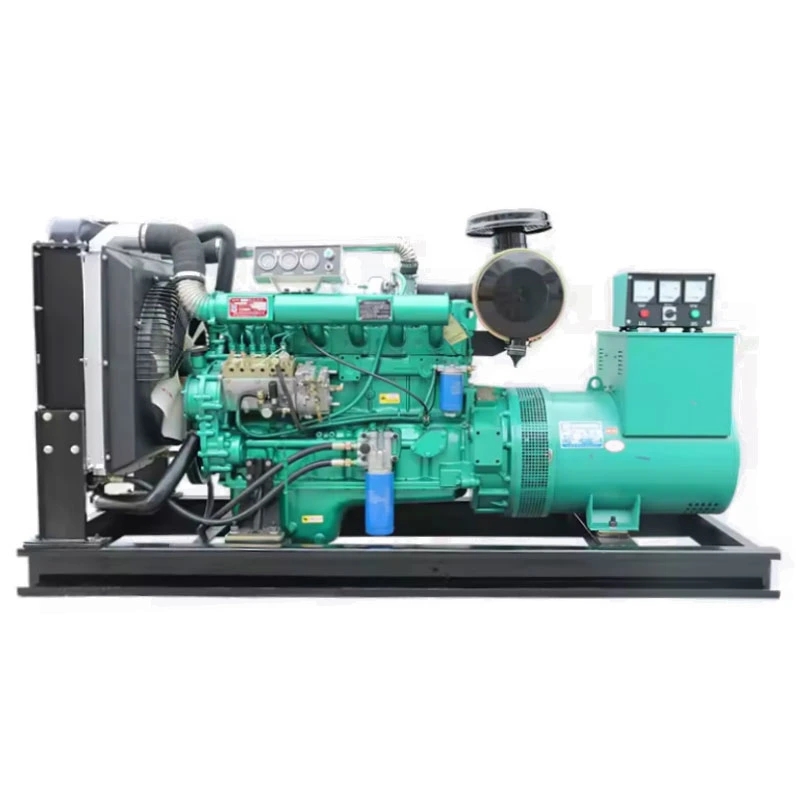Diesel Generators for Islanding Operation Ensuring Power Supply Reliability in Remote Locations
Introduction:
In remote locations where access to the electrical grid is limited or unreliable, diesel generators play a crucial role in ensuring a stable and continuous power supply. These generators are specifically designed for islanding operation, allowing them to function independently from the main power grid. This article aims to explore the importance of diesel generators for islanding operation, their key components, operational considerations, and their benefits in remote locations.
1. Understanding Islanding Operation:
Islanding operation refers to the ability of a power generator to operate in isolation from the main power grid. This feature is essential in remote locations, such as islands, off-grid communities, or areas prone to frequent power outages. Diesel generators are particularly well-suited for islanding operation due to their reliability, durability, and ability to provide a consistent power supply.
2. Key Components of Diesel Generators for Islanding Operation:
a. Engine: The heart of a diesel generator is its engine, which converts the chemical energy of diesel fuel into mechanical energy. Diesel engines are known for their efficiency, longevity, and ability to operate at varied loads with minimal maintenance requirements.
b. Generator: The generator is responsible for converting mechanical energy from the engine into electrical energy. It consists of an alternator, which generates an alternating current (AC), and a voltage regulator, which ensures a stable voltage output.
c. Control System: The control system of a diesel generator for islanding operation is designed to monitor and regulate various parameters, including voltage, frequency, and load. It also incorporates safety features, such as low oil pressure and high-temperature shutdown, to protect the generator from damage.
d. Fuel System: The fuel system comprises a fuel tank, fuel lines, filters, and injectors. Diesel generators typically have large fuel tanks to ensure extended operation without frequent refueling.
e. Cooling System: Diesel engines generate a significant amount of heat during operation. A cooling system, consisting of a radiator, coolant, and a fan, is employed to maintain optimal engine temperature and prevent overheating.
3. Operational Considerations for Islanding Operation:
a. Automatic Transfer Switch (ATS): An ATS is a critical component for islanding operation. It automatically detects power outages from the main grid and switches the load to the diesel generator. When 200kw diesel generator for small manufacturing is restored, the ATS transfers the load back to the main grid, ensuring a seamless transition.
b. Synchronization: Synchronizing the diesel generator with the main grid is crucial when islanding operation is not permanent. Proper synchronization ensures that the generator's frequency and voltage match the grid, allowing a smooth transfer of load.
c. Load Management: Managing the load demand is essential to ensure the diesel generator operates within its capacity. Load shedding techniques, such as prioritizing essential loads and shedding non-essential ones during peak demand, help optimize generator performance.
d. Regular Maintenance: Diesel generators require regular maintenance to ensure their reliability and longevity. Scheduled inspections, oil and filter changes, fuel system maintenance, and testing of safety features are vital to keep the generator in optimal condition.
4. Benefits of Diesel Generators for Islanding Operation:
a. Reliability: Diesel generators are renowned for their reliability, making them well-suited for islanding operation. They can withstand heavy loads, start quickly, and operate for extended periods without interruption.
b. Fuel Availability: Diesel fuel is widely available, making it a convenient choice for remote locations. Unlike other fuel sources, diesel can be stored for long periods without degradation, ensuring a reliable fuel source in isolated areas.
c. Durability: Diesel generators are built to withstand harsh conditions and operate in remote environments. Their robust construction and ability to handle variable loads make them ideal for islanding operation in challenging locations.
d. Cost-Effectiveness: While the initial investment in a diesel generator may be higher compared to other alternatives, the long-term cost-effectiveness of diesel generators is undeniable. Their fuel efficiency, low maintenance requirements, and extended lifespan justify the investment.
Conclusion:

Diesel generators designed for islanding operation provide an essential power supply solution in remote locations. Their reliability, durability, and ability to function independently from the main power grid make them a practical choice for off-grid communities, islands, and areas with unreliable electricity. By understanding the key components, operational considerations, and benefits of diesel generators for islanding operation, stakeholders can make informed decisions to ensure a stable and continuous power supply in remote locations.